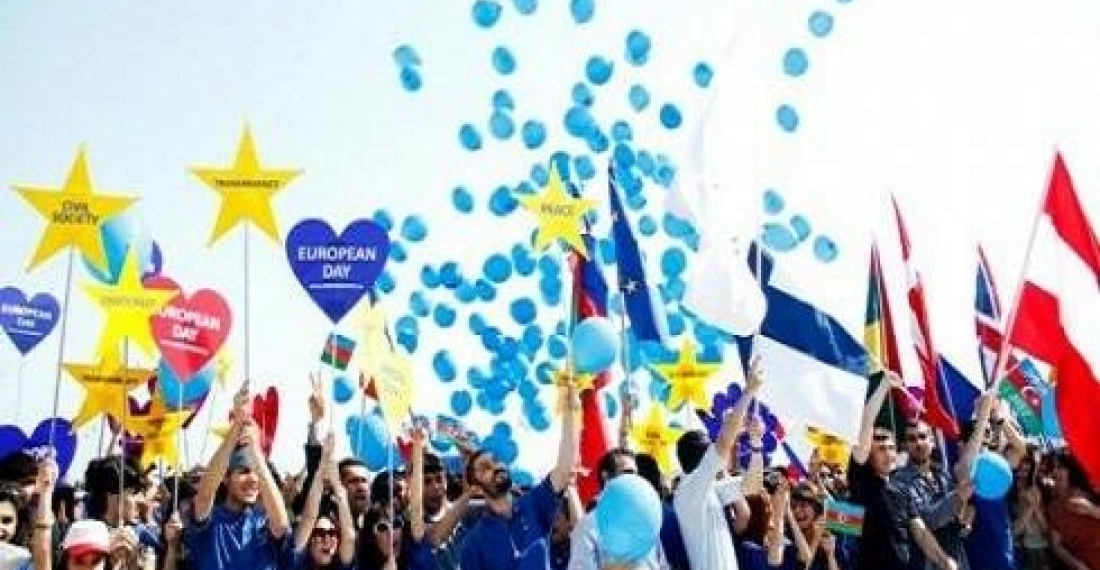In the third and last part of this article on Azerbaijan LINKS Analysis looks at the options open to the Government of Azerbaijan once the curtain falls on Eurovision 2012.
The first reaction of the government of Azerbaijan to the European Parliament’s resolution, adopted on Thursday (24 May 2012) which was critical of the human rights situation in the country, was predictable. It threatened to cut relations with the European Parliament, and to suspend the negotiations on the Association Agreement with the EU. Indeed isolating itself from Europe is one option that the country that has put so much effort to host Eurovision 2012 has.
There has been a school of thought within the Azerbaijani government that has been against further relations with Europe, rightly suspecting that this will require political concessions at home. Indeed the European Union does not mince its words when it talks about conditionality with regards to countries with which it signs Association Agreements. That is why perhaps the negotiations between the EU and Azerbaijan have been moving at a much slower pace than with other countries in the region. Those in Azerbaijan who do not want to pay this political price point sometimes to Russia as an alternative model, and more bizarrely sometimes to the oil sheikhdoms of the Gulf. They forget that it was Heidar Aliev who put Azerbaijan on a European course, implementing enough reforms to enable the country to join the Council of Europe in 1997, and sending a clear message of the importance he attached to this, by sending his son, the current President, as Head of Delegation to the Council of Europe Parliamentary Assembly.
Part of the problem is that an important section of the Azerbaijani government does not understand Europe, let alone the values that underpin it. One can see this by the contempt heaped on European civil society organisations who have spearheaded the campaign against human rights abuses in Azerbaijan, many of whom are now being accused of being part of the Armenian lobby. These officials, for example, cannot understand why European governments and politicians take the views of NGOs seriously.
So with Eurovision out of the way there is a possibility that Azerbaijan will redefine its relations with Europe, which would probably be accompanied by a crackdown against critics at home. A complete break in relations is not possible, but a repositioning which will freeze political relations is. Ironically this comes at a time when Europe’s position on the Nagorno-Karabakh conflict is closer to the Azerbaijani position then it has ever been. The same European Parliament that is now being derided was only a few weeks ago praised in Baku for adopting an important resolution that sets new benchmarks for the EU’s position on the issue.
There is ofcourse an alternative scenario, one which does not even entail a change of policy or discourse on the part of the Azerbaijani government, just a change of methodology. Azerbaijan is already committed to respect for human rights, freedom of speech, freedom of media and free and fair elections. It has signed up to every single European convention or principle that is going. The President continuously reaffirms his commitment to these principles and commitments. All Azerbaijan has to do is to implement its own policies, respect its own constitution, honour the commitments it has signed up to and put its words into action.
The hiatus on political reform that the President of Azerbaijan announced at the beginning of his presidency has lasted long enough. It should now become the next objective of the government. The government should announce a road map for reforms.
A first step could be the appointment of a new Ombudsman. The current holder is well meaning and has done some good work, but it is important now to have somebody who has the trust of the whole society and who can champion human rights robustly from within the government.
The second step should be the launch of a national dialogue. The split and polorisation in Azerbaijani society that has been exposed by all the shenanigans around Eurovision is dangerous for the country. How a national dialogue can evolve is not clear since the institution that could provide the stimulus for such an endeavour, the Parliament, is the least prepared for it. The President can set up a credible Commission of wise men (and hopefully women) to help prepare for this. For this process to be credible it needs to have a defined time-frame and an end game. Given all the problems associated with the last parliamentary elections in Azerbaijan holding early parliamentary elections is necessary. Parliament must be restored as soon as possible as the forum where political dialogue in the country takes place and this is only possible if free elections are held and all legitimate political forces are represented.
Eurovision 2012 has been a good party. It is important that after the Party Azerbaijan is not left with a hangover but with a positive legacy.
This is the third and last part of a three part article on Azerbaijan prepared by LINKS Analysis for commonspace.eu ©
The first part: "Azerbaijan's parallel worlds. Part 1: The successes" is available here.
The second part: "Azerbaijan's parallel worlds. Part 2: The failures" is available here.
source: LINKS Analysis
photo: Young Azerbaijanis celebrating Europe Day in Baku earlier this month (picture courtesy of Mehman Husseynov)







